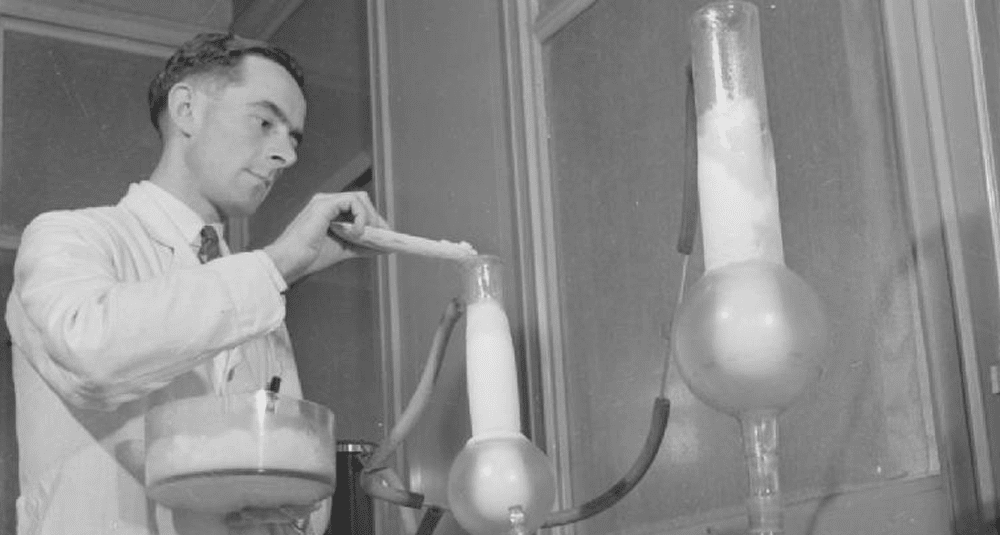Which scientist discovered Penicillin in 1928?
Last Updated:
The discovery of penicillin is attributed to Alexander Fleming, a Scottish bacteriologist, in 1928. This chance discovery marked a revolution in the medical field, ushering in the era of antibiotics and transforming the treatment of bacterial infections.
Born in Scotland in 1881, Fleming worked as a physician and researcher, notably during the First World War, when he observed the devastating effects of infections on wounded soldiers. These experiences prompted him to look for ways to combat bacterial infections.
In September 1928, while working at St. Mary’s Hospital in London, Fleming noticed that one of his Petri dishes, containing colonies of staphylococci (a type of bacterium), had become contaminated with mold. He observed that the bacteria around the mold had been destroyed, while those further away were intact. The mold in question belonged to the Penicillium genus, and Fleming identified it as Penicillium notatum.
Fleming soon realized that mold produced a substance capable of killing bacteria. He named this substance penicillin. Penicillin proved effective against a wide range of pathogenic bacteria, opening up new possibilities for the treatment of infections.
In 1929, Fleming published his findings in the British Journal of Experimental Pathology. Although his work aroused interest, difficulties in extracting and purifying penicillin initially limited its practical application.
In the 1940s, Howard Florey and Ernst Boris Chain, researchers at Oxford University, took up Fleming’s work. They succeeded in purifying penicillin and demonstrating its clinical efficacy, notably by treating serious infections in patients.
During the Second World War, the need to treat soldiers’ infections accelerated efforts to mass-produce penicillin. International collaboration, notably between British and American scientists, led to the development of industrial production methods for penicillin.
Penicillin ushered in the era of antibiotics, revolutionizing the treatment of bacterial infections. Previously fatal diseases such as pneumonia, septicemia and gangrene could be treated, saving millions of lives.
In 1945, Alexander Fleming, Howard Florey and Ernst Boris Chain were awarded the Nobel Prize in Physiology or Medicine for their work on penicillin. Their collaboration not only saved lives during the war, but also paved the way for the discovery and development of other antibiotics.
Alexander Fleming’s discovery of penicillin in 1928 transformed modern medicine. Subsequent collaboration with Howard Florey and Ernst Boris Chain led to the development and production of this revolutionary antibiotic, ushering in a new era in the treatment of bacterial infections. Penicillin remains to this day one of the most important and influential discoveries in the history of medicine.
sciences

Which scientist discovered Penicillin in 1928?
Answer
Scientist Alexander Fleming discovered penicillin in 1928. This discovery revolutionized medicine by introducing antibiotics, capable of treating many bacterial infections.